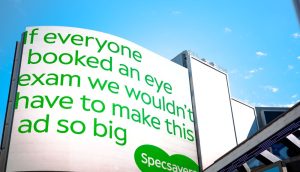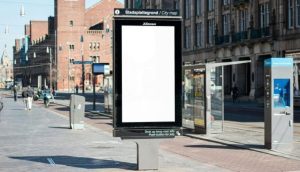The Toronto Transit Commission (TTC) approved the rollout of LCD screens in subways stations across Toronto on May 12, opening the door to new digital smart ads that offer very localized messaging opps. The screens will provide news, sports and weather updates to the TTC’s 1.1 million daily commuters. Advertisers already on board include Shoppers Drug Mart, Pfizer, Ford, Bally’s, Pizza Hut and KFC.
‘This is a brand new medium that we’re building from scratch,’ says Glenn Davies, president of sales and marketing at Toronto-based private digital network operator ONESTOP Media Group. ‘We had 13 national advertisers out of 15 in the pilot program and we generated more than $1 million in ad revenue.’ He goes on to add that digital advertising is affordable for all advertisers because of the low production cost. ‘By having a digital template, it’s very easy,’ he says.
The service can also be customized through smart ad technology. ‘Smart ads will be triggered for specific areas,’ says Davies. ‘For example at the Chester or Pape station, the number for the local Telus mobile phone distributor will show up. So it’s a national ad but there will be a local message specific to that area.’
Fifteen-second commercials run on a 10-minute commercial cycle within the network. Rates range from $4,755 per week for the weekday morning commute (at one ad per cycle or 210 spots weekly) to as much as $14,505 for full saturation (at one ad per cycle in all rotations or 801 spots per week). In mid-June, the company plans to have two subway cars outfitted with LCD screens as part of yet another pilot project to a total of four screens per subway car at completion. In-car screens will hold the same content as platform screens and, for TTC riders, this means you’ll never have to wonder again why your train is delayed. Davies adds that content will be available in different languages depending on where the train is within the city.
The lead partner on the project is Toronto-based interactive agency Fourth Wall Media with Viacom Outdoor and CHUM TV as media partner and content supplier, respectively. ONESTOP Media Group, which is owned by Fourth Wall, is behind the installation and operation of the screens.
A similar service – called Métrovision – is already in place in Montreal’s subway system and according to Davies, Vancouver has approved a projected rollout of LCD screens in their subway system by the end of 2005. As in Toronto, ONESTOP has submitted an RFP in partnership with Viacom. The contract has yet to be awarded.






















